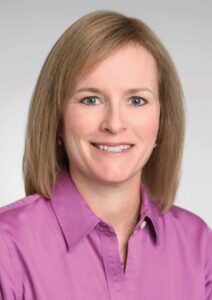Alumni Spotlight

Colleen E. Ruegger
RU Pharmacy ’90, GSNB ’96
Executive Director, Novartis Pharmaceutical Corporation
What are you most proud of regarding your career?
In my career, I am most proud of the impact I have had in developing people in my teams and watching people grow in their careers, taking on new challenges and opportunities. I am also proud of the positive impact that the products we have developed at Novartis have had on patients’ lives. Working in a global company has provided me with opportunities to better understand global healthcare needs and given me a greater sense of purpose working in the pharmaceutical industry.
How was your RU Pharmacy experience foundational in where you are today?
My experience at Rutgers Pharmacy School was foundational to my success today for several reasons. First, it gave me my first exposure to the pharmaceutical industry and drug development, highlighting the impact that pharmacists and pharmaceutical scientists can have on patients’ lives. Second, I met individuals in pharmacy school who helped shape the direction of my career and encouraged me to pursue graduate school. Finally, there is a great network of Rutgers alumni that support each other and I made invaluable contacts over the years through this network.
Are there any passion projects you’d like to share with other alums?
Currently, I am passionate about STEM education and Health Equity. I am representing Novartis on the R&D Council on NJ where there’s a big focus on supporting and increasing STEM education in NJ. I also work with the Healthcare Businesswomen’s Association (HBA) and I’m part of the Women in Healthcare Give Back Affinity Group where we are focusing on working with non-profit partners to support health equity and help educate people about health equity.
